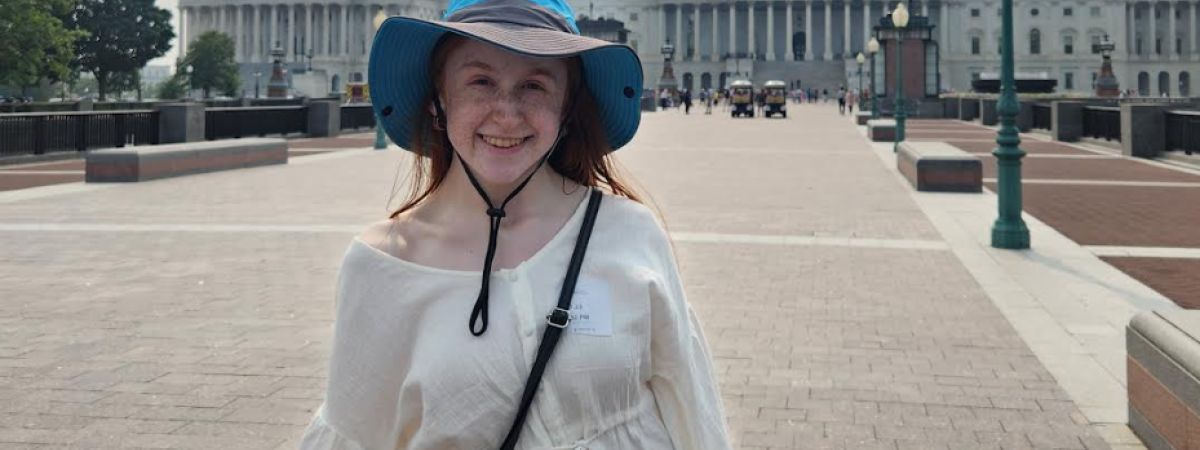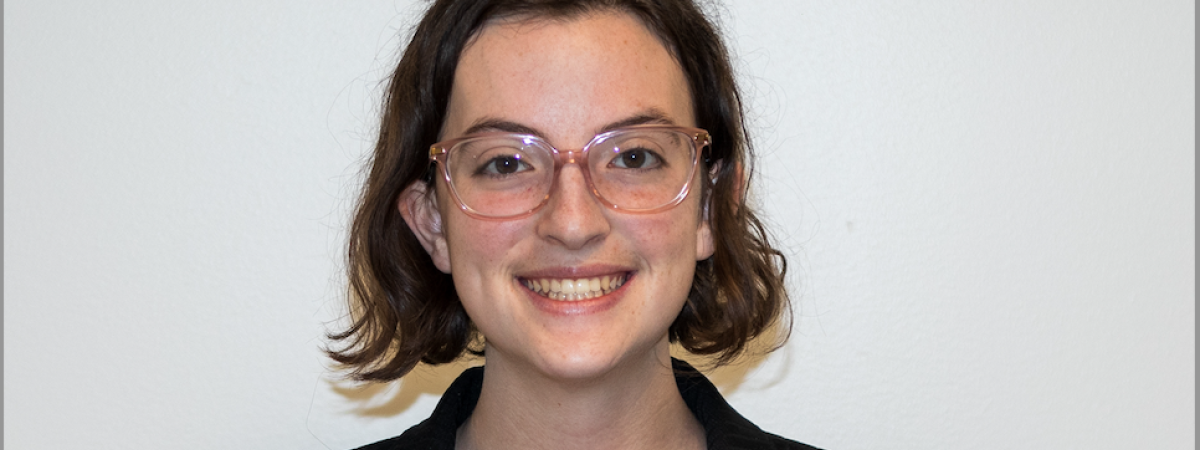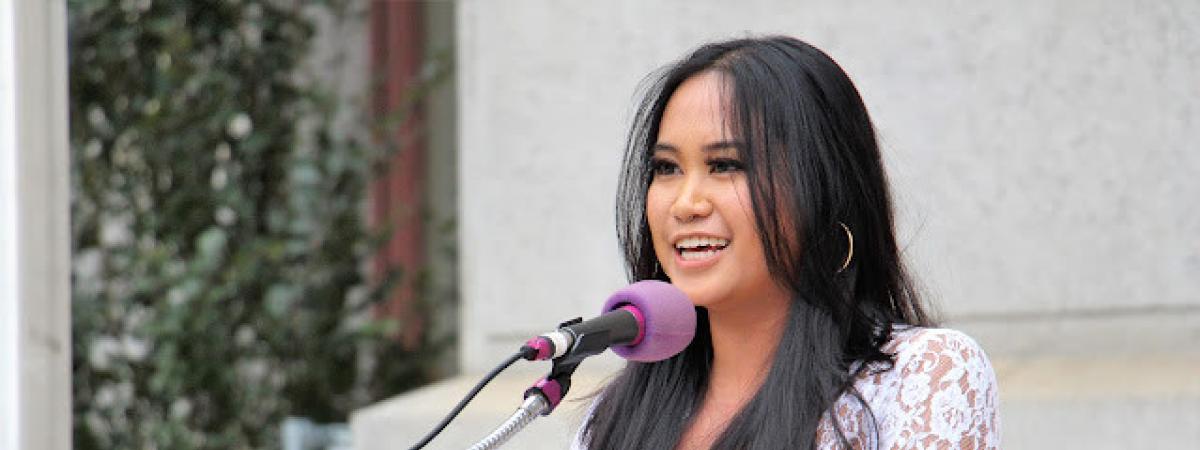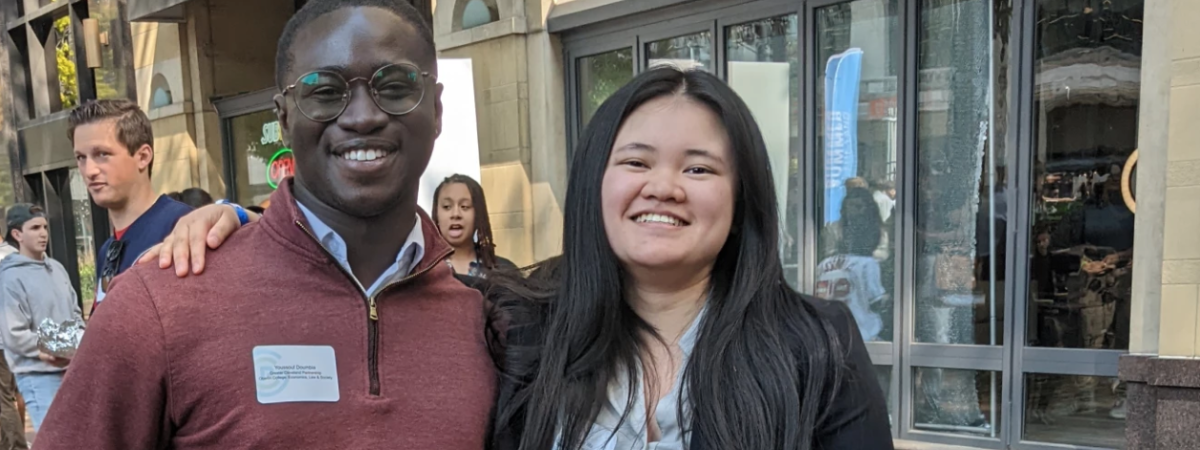One of the ways that the Baker-Nord Center supports undergraduate students is through Humanities-at-Work, a program that allows for students engaged in the humanities to pursue internships, while having the security of the Baker-Nord Center providing funding if the internship is unpaid or underpaid. Below, you will hear from a few students and their experiences under Humanities-at-Work.
Amanda Wu (Third Year, International Studies and Political Science) has held four internships in the past year: Cleveland City Council, Greater Cleveland Partnership, Global Cleveland, & as a Global Outreach Assistant for CEO Harriet L. Russell at Business Ease Overseas.
Abigail Gilman (Second Year, Political Science and Theatre) interned at 314 Action in Washington DC and as a Social Media & Outreach Intern at 2nd Act Org.
Kintan Silvany (Third Year, Education and International Studies) interned at Teach for America and the Office of Immigrant Affairs of the Mayor's Office in Philadelphia.
Lisa O'Brien (Fourth Year, Theatre and International Studies) interned at Andritz Metals France S.A.S in Asnieres-sur-Siene Franc.
Find out more about Humanities-at-Work here!
How did your humanities training prepare you for your internship?
Lisa: First and foremost, the skills I learned with the French language department were extremely helpful because my whole internship was conducted in French. My classes gave me the language tools and cultural context to feel confident in the office. I also found my course on anthropology helpful because it made me remember to not pass cultural value judgements but to approach the internship from a place of learning. Also, all of my writing experience made my daily tasks of preparing documents much easier.
Amanda: My experience with applying humanities to the "real world" was not solely limited to theories I learned in the classroom. For me, what helped the most was my ability to critically think about the big picture (i.e. historical background, cultural context, etc) and using that to help me navigate through the specifics for each of my projects.
Abigail: Both internships involved various styles of writing, so my humanities education definitely came into play in that area. More generally, humanities classes are all about asking questions and thinking outside the box, so getting to implement those skills (suggesting content ideas, learning more about how fundraising works, etc) was really helpful.
Kintan: Collaboration was an aspect that helped me throughout the internship. It's very common for group work to happen in my humanities classes and it prepared me to work along with my co-intern and eventually immigrant business owners and city officials. My non-profit experiences have also let me focus on more community based needs.
What was the most valuable thing you learned from your internship?
Lisa: The most valuable thing I learned at my internship was that as long as you are willing to advocate for yourself, your humanities skills are beneficial to any industry you choose. I worked at a metals engineering firm, and I had no idea about the industry; however, my writing skills and the fact that I was a native speaker became very useful assets for an international company like Andritz. Even if an opportunity lies outside your area of study, you never know what connections you can make and what new skills you can learn, so branch out with your job searches!
Amanda: I think one of the most valuable things I learned was how to work rather than what the work was. I wholeheartedly believe that soft skills are hugely underrated. In consideration of the so-called "humanities arsenal," interpersonal and critical analysis skills go a long way.
Abigail: The most valuable thing I learned is to ask questions and don't be afraid to say "I don't know". There's no shame in asking for clarification, and eagerness to learn is a good thing. At the same time, don't be afraid to take initiative. Ask for help, but don't let your work be passive.
Kintan: (Regarding her experience with Teach for America) Teaching isn't the only path to education one can take!
(Regarding her experience with the Office of Immigrant Affairs) Making connections throughout your internship is so important! Through this internship, I was able to meet many folks who worked in sectors of different interests I have, a main one being public service. It was also my first experience being a government worker, so the exposure to how that works really enlightened me.





